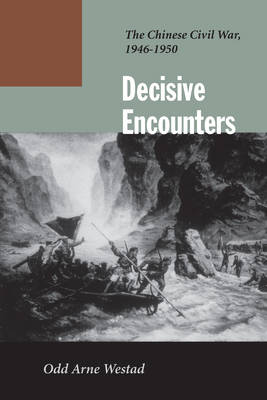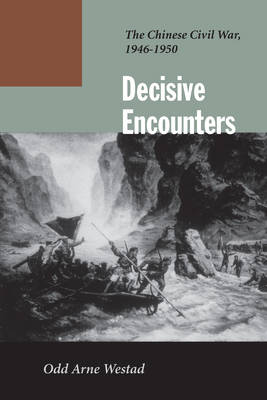
- Afhalen na 1 uur in een winkel met voorraad
- Gratis thuislevering in België vanaf € 30
- Ruim aanbod met 7 miljoen producten
- Afhalen na 1 uur in een winkel met voorraad
- Gratis thuislevering in België vanaf € 30
- Ruim aanbod met 7 miljoen producten
Zoeken
€ 51,95
+ 103 punten
Uitvoering
Omschrijving
The Chinese Civil War was one of the key conflicts of the twentieth century. The Communist victory determined Chinese history for several generations, and defined international relations in East Asia during the Cold War and after. Despite its importance and scope--its battles were the largest military engagements since World War II--until now remarkably little has been known about the war, and even less about its effects on the societies that suffered through it. This major new history of the Chinese Civil War attempts to answer two central questions: Why was the war fought? What were the immediate and the lasting results of the Communists' victory? Though the book highlights military matters, it also shows how campaigns were mounted alongside profound changes in politics, society, and culture--changes that ultimately contributed as much to the character of today's China as did the major battles. By analyzing the war as an international conflict, the author explains why so much of the present legitimacy of the Beijing government derives from its successes during the late 1940s, and reveals how the antagonism between China and the United States was born.
Specificaties
Betrokkenen
- Auteur(s):
- Uitgeverij:
Inhoud
- Aantal bladzijden:
- 427
- Taal:
- Engels
Eigenschappen
- Productcode (EAN):
- 9780804744843
- Verschijningsdatum:
- 21/03/2003
- Uitvoering:
- Paperback
- Formaat:
- Trade paperback (VS)
- Afmetingen:
- 153 mm x 233 mm
- Gewicht:
- 594 g

Alleen bij Standaard Boekhandel
+ 103 punten op je klantenkaart van Standaard Boekhandel
Beoordelingen
We publiceren alleen reviews die voldoen aan de voorwaarden voor reviews. Bekijk onze voorwaarden voor reviews.











